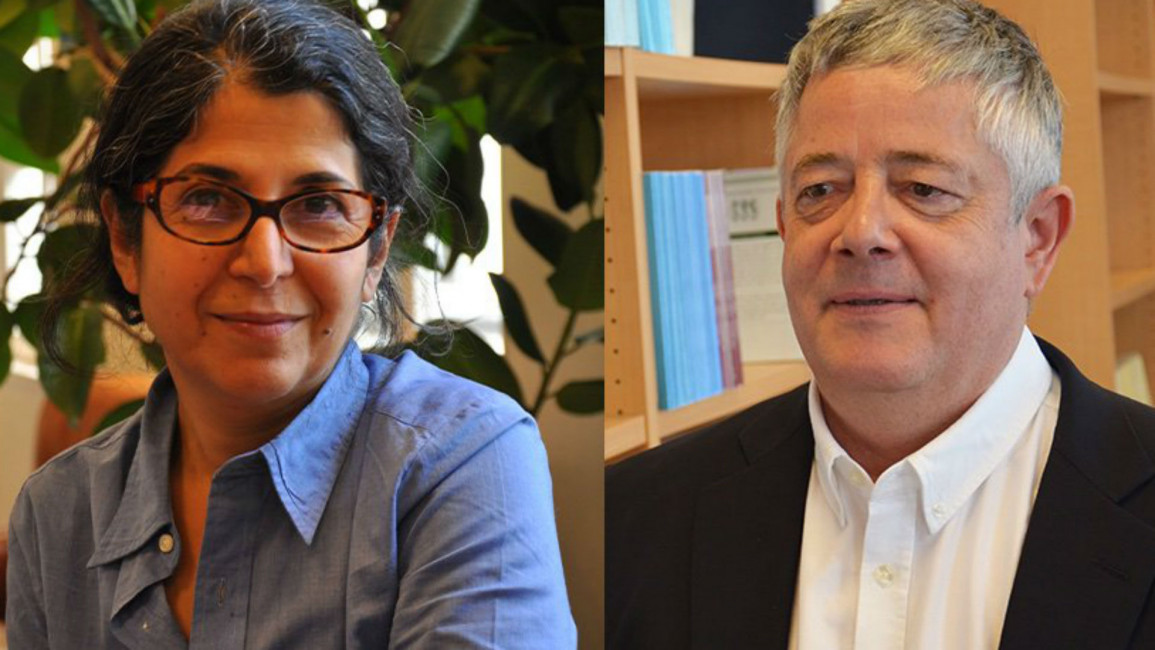France summons Iran ambassador over 'intolerable' detention of academics
France's foreign ministry on Friday said it had summoned the Iranian ambassador over the "intolerable" detention of two French academics, expressing "grave concern" that one was now on hunger strike.
The envoy "was reminded of France's demand that Fariba Adelkhah and Roland Marchal are released without delay and that the Iranian authorities show total transparency over their situation," it said in a statement.
"As the President (Emmanuel Macron) and Foreign Minister (Jean-Yves Le Drian) have said on several occasions, their imprisonment is intolerable," it added.
Adelkhah and Marchal, both academics at Sciences Po in Paris, have been held by the Iranian authorities since June.
The university said this month that Adelkhah and another detained academic, Australian Kylie Moore-Gilbert, had started a hunger strike.
The French statement said the ministry had made clear to the ambassador "our grave concern over the situation of Mrs Fariba Adelkhah, who has stopped taking food".
It also said the ministry reaffirmed France's demand of allowing consular access, a request which has so far been refused. Iran does not recognise dual nationality.
"The French authorities will continue to act with determination to obtain their release," it added.
French researchers expressed their concern in tweets and press commentaries.
|
An open letter was sent to the US-based Center for Human Rights in Iran signed with the names of the two women after it was received "by a source with contacts inside the prison", the center said in a Christmas Eve statement.
The center quoted the letter as saying that the women were starting "their joint hunger strike in the name of academic freedom" on behalf of researchers like themselves "unjustly imprisoned on trumped up charges."
The letter said they had been subjected to psychological torture and human rights violations. It said they are being held in Ward 2-A, allegedly run by the Islamic Revolutionary Guard Corps.
'Academic freedom'
Iranian officials disclosed in July the arrest of Adelkhah, a prominent anthropologist and specialist in Shia Islam, who often traveled to Iran for her research on post-revolutionary Iranian society. They said she was arrested on espionage charges.
Her friend and fellow researcher Roland Marchal was arrested as he tried to visit her, France revealed in October. He is being held in a men's ward and stands accused of "collusion against national security", according to his lawyer.
Moore-Gilbert, a University of Melbourne scholar on the Middle East, has been jailed since October 2018. On Thursday, the Center for Human Rights in Iran published a letter she addressed in June to Australia's prime minister, pleading for help, and an update this month in which she begs him "to take immediate action".
In an open letter, Moore-Gilbert and Adelkhah, called for international solidarity in the name of "academic freedom".
Two Australians were freed from Iran in October while Australia freed an Iranian in what appeared to be a prisoner swap. Australian Foreign Minister Marise Payne said at the time that Moore-Gilbert's situation was "more complex".
Meanwhile, Iran indicated a willingness to make prisoner exchanges with the United States after freeing a Chinese-American scholar from Princeton held for three years in a prisoner swap.
Read more: Iran restricts internet access again as fresh protests anticipated
A fellow scholar and friend of Adelkhah, Jean-Francois Bayart, and researcher Beatrice Hibou wrote in Thursday's Le Monde newspaper that the women's determination should not be doubted. They noted that Adelkhah had earlier created a discussion group for women on Telegram, an encrypted social network, calling it the Lionesses.
"Having known her for a long time, we know she is ready to die like a lion to defend her freedom, that of her job and her dignity," they wrote.
Follow us on Twitter and Instagram to stay connected



